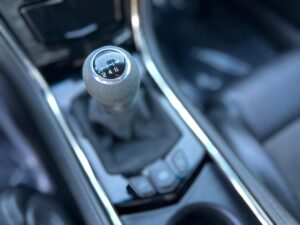So, you’re wondering…are Audis expensive to maintain?
Short answer, it depends…
For those who appreciate German engineering, Audi stands as one of the most desirable luxury brands on the market. With their sleek design, cutting-edge technology, and performance-driven DNA, it’s easy to see why car enthusiasts gravitate toward them.
Let’s break down the true costs of maintaining an Audi, why those costs exist, and whether or not an Audi is the right investment for you.
Are Audis Expensive to Maintain? The Cost of Ownership:
When you buy a luxury car like an Audi, you’re not just paying for the four rings on the front grille—you’re buying into high-performance engineering, advanced technology, and a certain level of prestige.
But with that, comes higher maintenance costs compared to your average Toyota or Honda.
Audi vehicles require specialized care, premium parts, and expert servicing, all of which contribute to an overall higher cost of ownership.
But how much more are we talking about?
According to RepairPal, Audi’s annual maintenance costs average around $987 per year, which is higher than the industry average but still more affordable than some of its direct German rivals (BMW and Mercedes-Benz).
However, that number can vary drastically depending on the model you own, your driving habits, and how well you stay on top of routine maintenance.
So, what exactly makes Audis expensive to maintain?
1. Parts and Repairs Aren’t Cheap
One of the biggest reasons why Audis are expensive to maintain comes down to parts and labor costs.
Unlike domestic or Japanese brands, Audi vehicles require specialized OEM (Original Equipment Manufacturer) parts that are often imported from Germany.
That means you’ll typically pay a premium for everything—from brake pads to spark plugs.
For example:
- Brake pad replacement (parts + labor): $300–$800
- Oil change (synthetic required): $150–$250
- Timing belt replacement (a common Audi service): $1,000–$1,500
- Transmission repair (varies by model): $5,000+
And if you own a performance model like an Audi S4, RS5, or R8, expect those costs to be even higher.
Audi parts are designed for precision and performance, which means they’re not interchangeable with generic aftermarket options in many cases.
If you try to cut corners with cheap parts, you risk compromising the performance and longevity of the vehicle—which defeats the purpose of owning an Audi in the first place.
2. Labor Costs Are Higher Due to Complexity
Not all mechanics are equipped to work on an Audi.
These cars come with sophisticated engineering and high-tech components, requiring skilled labor from trained Audi specialists. That means you can’t just take your Audi to the nearest budget auto shop and expect the same level of expertise.
- Audi mechanics and dealerships charge a premium hourly rate—often $150–$200 per hour, depending on your location.
- Certain Audi models require special tools and diagnostic equipment, which not every independent shop has access to.
- Some repairs, like timing chain replacements or turbocharger work, are labor-intensive and take multiple hours (or even days) to complete.
If you’re buying an Audi, having a trusted, certified Audi technician is key. While it may cost more upfront, expert servicing will save you from bigger headaches down the road.
3. Electronics and Technology Require Specialized Repairs
Audi has always been at the forefront of automotive technology, and while that’s a big selling point, it’s also one of the reasons maintenance costs are high.
Modern Audis come loaded with advanced driver-assist features, digital dashboards, MMI infotainment systems, adaptive suspensions, and electronic steering components—all of which can be expensive to repair when they malfunction.
For instance:
- MMI system repair (if your screen glitches out): $1,000+
- Adaptive suspension repair: $2,500–$5,000
- ECU (engine control unit) replacement: $1,500+
And let’s not forget—as cars become more tech-heavy, they also become more prone to electrical issues.
While Audi’s build quality has improved over the years, it’s not uncommon for certain models to have infotainment failures, sensor malfunctions, or software glitches that require dealership-level programming to fix.
4. Are Audi Aspects Expensive to Maintain? Routine Maintenance Is Essential.
If you want your Audi to run smoothly for years to come, routine maintenance is non-negotiable.
Unlike some economy cars that can go without service for a while, Audis demand regular care and high-quality fluids to stay in peak condition.
Here’s a breakdown of some common Audi maintenance services:
| Service | Frequency | Estimated Cost |
|---|---|---|
| Oil Change (synthetic) | Every 10,000 miles | $150–$250 |
| Brake Fluid Change | Every 2 years | $150–$300 |
| Transmission Fluid Change | Every 40,000 miles | $300–$600 |
| Coolant Flush | Every 50,000 miles | $150–$250 |
| Spark Plug Replacement | Every 40,000 miles | $300–$600 |
| Timing Belt Replacement | Every 75,000–100,000 miles | $1,000–$1,500 |
Skipping regular maintenance on an Audi is a huge mistake.
Neglecting oil changes, coolant flushes, or timing belt replacements can lead to catastrophic engine damage—and trust us, a blown engine is the last thing you want to deal with.
Are They Reliable? Audis Expensive to Maintain…
One of the biggest misconceptions is that all Audis are unreliable money pits.
The truth is—it depends on the model.
Some Audi models are known for their durability, while others have a reputation for electrical issues, carbon buildup, and premature component failures.
The Most Reliable Audi Models:
- Audi A4 (B8/B9 Generations) – Solid reliability, relatively affordable to maintain.
- Audi A6 (C7 Generation) – Well-built engines, fewer major problems.
- Audi Q5 (2.0T Engine) – A great balance of luxury and dependability.
The Least Reliable Audi Models (Historically):
- Audi A6 (Older V6 Models) – Timing chain issues can lead to costly repairs.
- Audi Q7 (Early 3.0T Models) – High-tech issues and expensive suspension repairs.
- Audi S4 (Older V6 Models) – Known for timing chain tensioner failures, which can cost over $5,000 to fix.
If you’re looking for a lower-maintenance Audi, stick with base-engine models (2.0T four-cylinder) and avoid high-performance variants that require extensive upkeep.
Is Owning an Audi Worth It?
Here’s the thing—if you’re buying an Audi, you’re not buying it to save money on maintenance.
You’re buying it because you love the way it drives, the way it looks, and the premium experience that comes with it. Let’s be real, Audi is an iconic brand!
Yes, maintenance costs are higher than your average car. Yes, you’ll spend more on repairs compared to a Honda. But if you’re a car enthusiast who appreciates precision engineering, AWD performance, and German luxury, the cost of ownership is simply part of the package.
At Premiere Motorsports, we cater to those who love cars for what they are, not just for their affordability. We proudly sell a selection of enthusiast-approved and certified pre-owned Audis because we know that for the right buyer, an Audi is worth every penny.
So, is an Audi expensive to maintain? Probably.
But is it worth it? If you’re an Audi fan, without a doubt.
Looking to buy an Audi? Check out our current Audi inventory at Premiere Motorsports and find the perfect ride for you.




